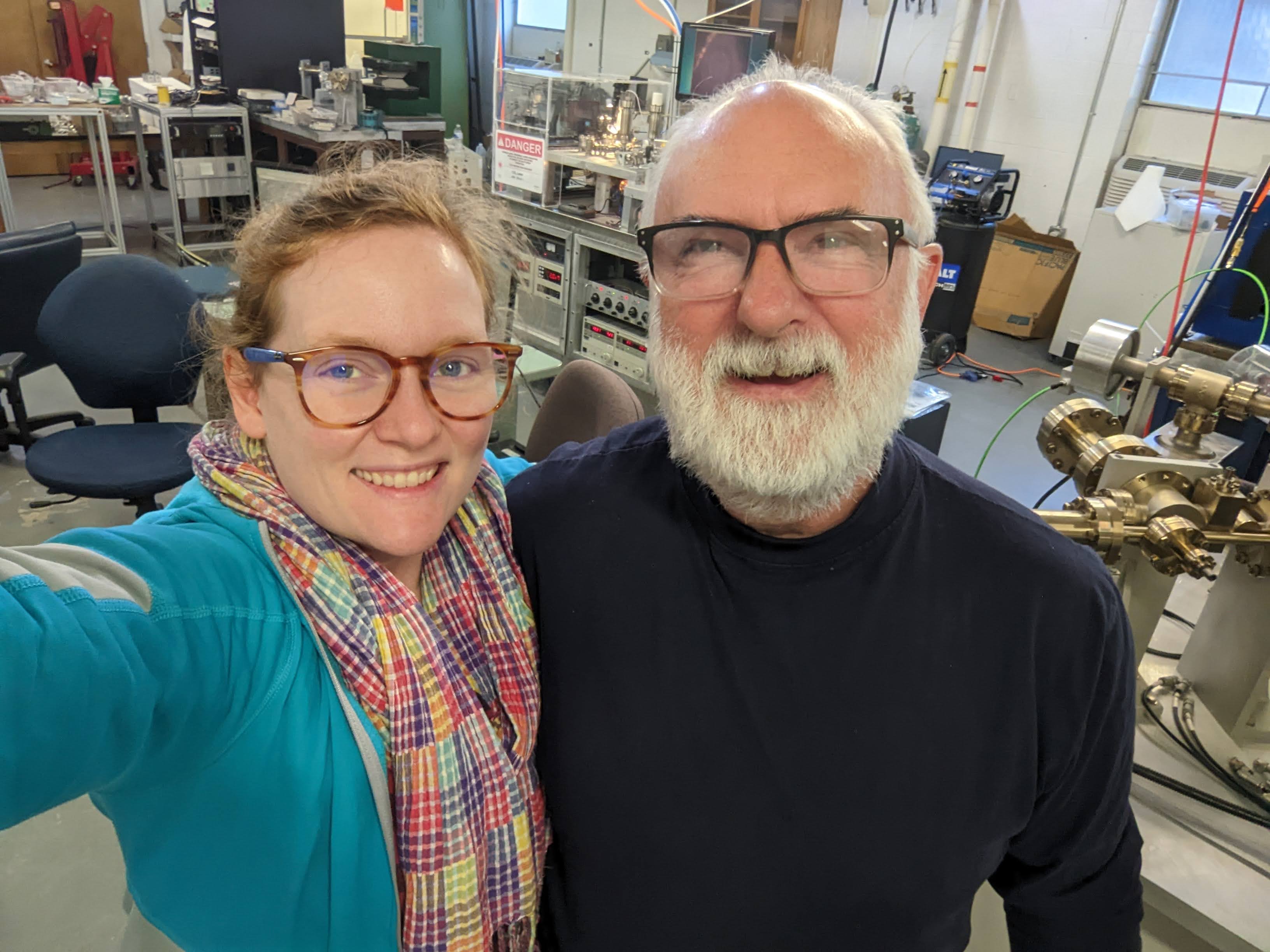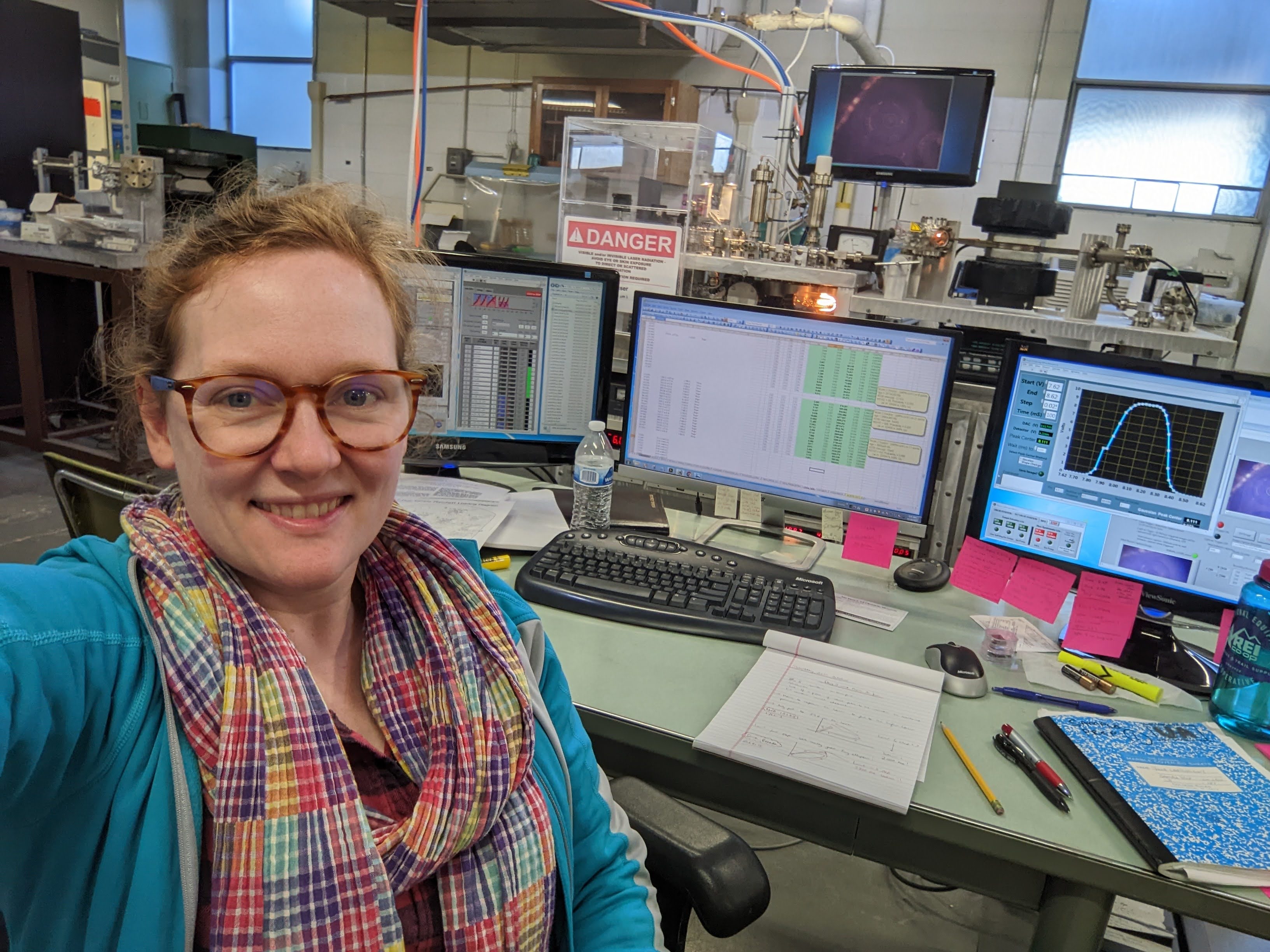COSAM News Articles 2022 November Leading planetary scientist receives SEC travel award to study meteorites at Auburn University
Leading planetary scientist receives SEC travel award to study meteorites at Auburn University
Julia Cartwright, an assistant professor in the Department of Geological Sciences at the University of Alabama, is the recipient of a 2022-2023 SEC Faculty Travelers award to conduct research on meteorites at Auburn University in collaboration with Bill Hames, a professor in the Department of Geosciences at Auburn University.
“As part of my research, I am interested in the timings of major events in the Solar System, and the compositions of the materials involved. Some meteorites represent materials that went through major planet-forming processes and have features akin to many of the rock types that we find on the Earth. Other meteorites represent some of the earliest phases to have condensed out of the Solar Nebula when the Solar System formed”, said Cartwright.
“While most of my research has been based on the Earth, I’ve always been interested in outer space. It is fascinating to think that some meteorites are part of the primordial nebular garden that gave rise to our Sun and planets, while others are potential fragments of ‘planetesimals’ that were destroyed by early collisions, now to abound within the asteroid belt. And rather than being cold and inactive for the past billions of years, these meteorites can collide within the asteroid belt, undergoing heating and melting, allowing us to study times of cataclysms in space when many asteroid collisions occurred” said Hames.
The SEC Faculty Travel Program encourages faculty to further work together among SEC member universities to allow new research or continue their projects and make a meaningful impact.
“I am thrilled to be working with Bill – we have been planning to work together for a while, and the funding from the SEC will really allow our project ideas to come to fruition!” said Cartwright.
“Julia is one of the world’s foremost authorities on noble gas cosmochemistry research,” said Hames. “With this funding from the SEC, she and her students are able to travel to Auburn to work with me to measure noble gases and mineral chemistry of various meteorites including chondrites, eucrites, howardites and mesosiderites.”
Cartwright and Hames will be conducting research on two key instruments housed in Auburn’s Department of Geosciences.
The Auburn Noble Isotope Mass Analysis Lab, or ANIMAL, combines mass spectrometry research and geochronology to help scientists unlock Earth’s history with radiometric age determinations. They will also use an electron-beam instrument for chemical analysis of these meteorites through the Auburn University Electron Microprobe Analyzer lab, or AU-EMPA.
“Both of these instruments have been generously provided, housed and cared for in the Beard Eaves Memorial Coliseum with support from the Department of Geosciences, the College of Sciences and Mathematics, AU Facilities and the AU Athletic Department,” explained Hames.
Cartwright and Hames plan to study the chemical composition of these meteorite samples as more focus on planetary exploration continues to grow.
“We are now starting to acquire materials from different localities in the Solar System, and the work that we are doing, to try to date these meteorite fragments, and to assess their compositions can help augment the framework of understanding for major Solar System processes,” said Cartwright.
"We also plan to write an external grant to help continue our research,” said Hames.
Latest Headlines
-
07/09/2024
-
Summer Bridge Program celebrates 21 incoming Auburn students as they prepare for future STEM careers07/02/2024
-
07/02/2024
-
06/17/2024
-
06/07/2024



